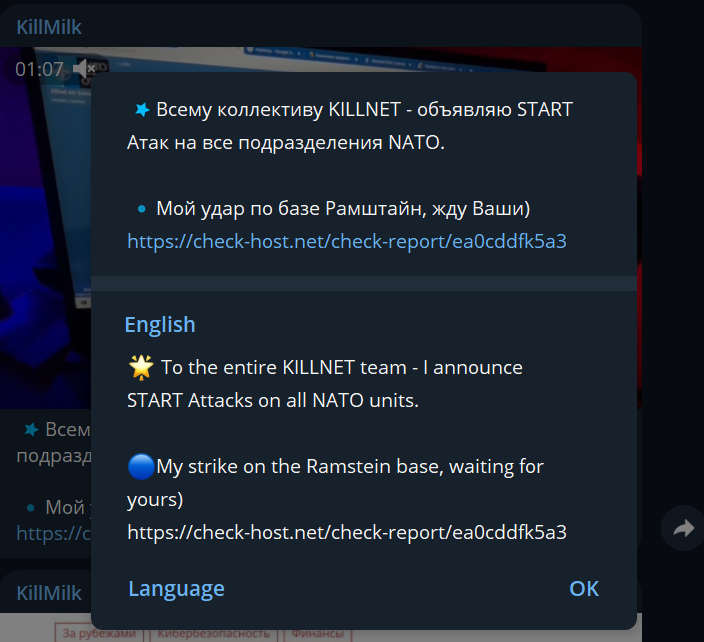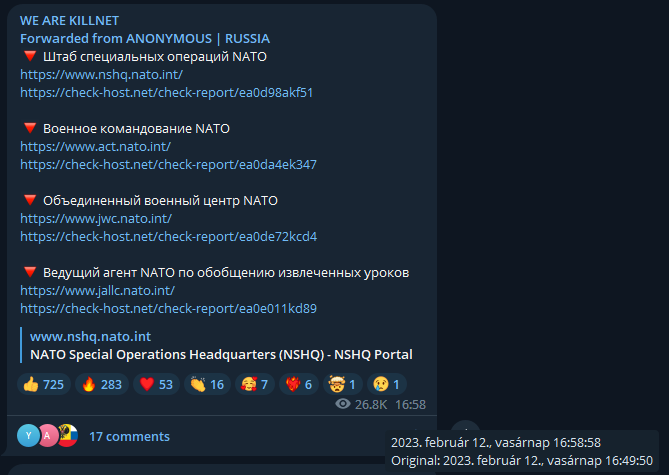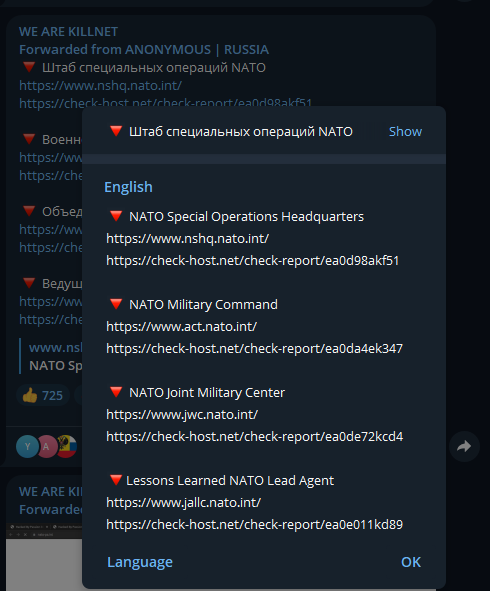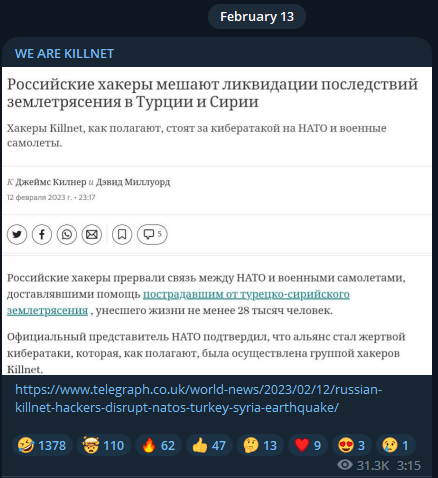Table of Contents
Russian hacking group Killnet has claimed responsibility for disrupting communications between NATO and other organisations providing earthquake relief in Turkey and Syria.
Strategic Airlift Capability (SAC) is a multi-national organisation which relies on NATO for conducting airlifts. The organisation is currently transporting search-and-rescue gear to help the disaster zone and was among those impacted by Killnet’s cyberattack.
Killnet and other hacking groups disrupted communications between NATO aircraft and others providing humanitarian aid in the disaster zone.
One of SAC’s C-17 aircraft was warned of the disruption in a message sent via the ACARS (Aircraft Communications Addressing and Reporting System) network. In the message, the aircraft’s personnel were told that NATO’s NR network had been hit with a DDoS.
“NATO cyber experts are actively addressing an incident affecting some NATO websites. NATO deals with cyber incidents on a regular basis, and takes cyber security very seriously,” said a NATO official.
NATO’s website also went offline. However, it was down for just a couple of hours before it was restored.
NATO has previously warned that cyberattacks could trigger a collective response. However, it’s ambiguous what would constitute such a response and what it would look like.
DDoS attacks that don’t directly put lives at risk will likely trigger a similar cyber response. Attacks targeting hospitals, transport networks, energy, certain military sites, and other such infrastructure that could directly cause loss of life or irreparable damage are more likely to cross a red line that escalates beyond a cyber response.
Around 288,000 cyberattacks were estimated to have been launched against Ukraine in the first 10 months of 2021 alone.
Citizens and businesses of countries that have supplied Ukraine with equipment and/or sanctioned Russia for launching its war of aggression have been encouraged to take “pre-emptive measures” to defend themselves against cyberattacks.















